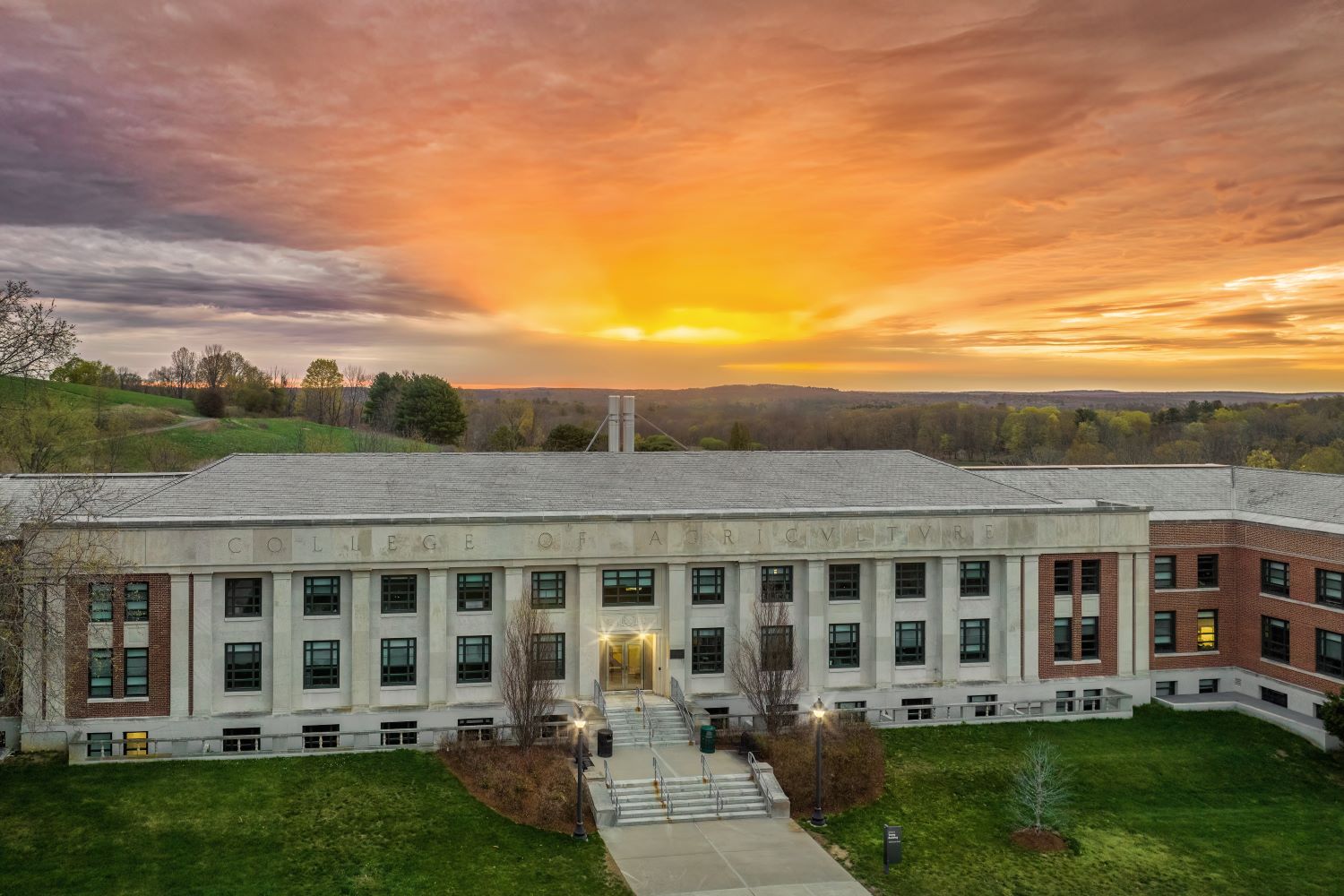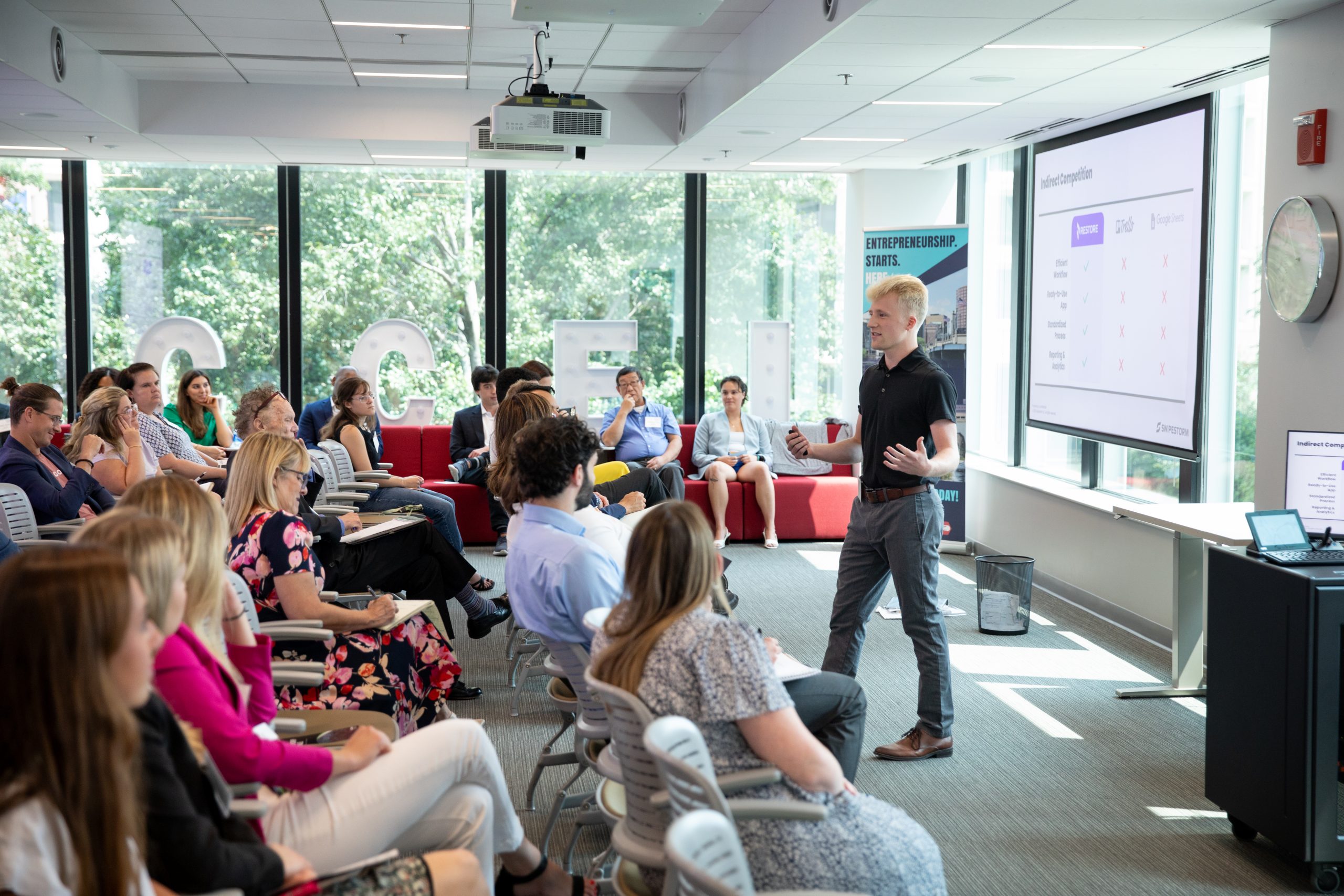Generally, when freshmen sign up for an English class, they have no idea what the readings and writings will be focused on. Not any more.
Now freshman English is focused not on topic ideas or reading lists chosen by teaching assistants or professors, but on topics freshmen are so excited about they are actually living them.
The change, supported by a three-year grant from the Davis Educational Foundation, ties a four-credit, writing-intensive freshman English class to the living-learning communities that a growing number of freshmen join.
Reading and writing assignments focus on 13 subject areas related to the learning environments, including animal science, business connections, community service, EcoHouse, Eurotech, Global House, leadership, public health, and women in math, science, and engineering — subjects students are excited about.
Interest in living-learning communities is rising, with 20 percent of first-year non-honors students – double last year’s percentage – living in 14 such communities.
First-year honors students are required to live together, and an additional number of students participate in non-residential interest groups. By 2014, the University hopes to have 25 percent of non-honors freshmen involved in living-learning communities, says David Ouimette, executive director of First Year Programs and Learning Communities.
By 2013, 75 percent of first-year learning community students will participate in an integrated learning community-themed freshman writing course, he adds.
Preliminary results in the new program indicate a “close relationship between quality of writing assignments and quality of student writing,” says Thomas Recchio, professor of English and director of freshman English in the College of Liberal Arts and Sciences.
The grant also helps the department achieve its goals for the freshman English program, including helping students achieve critical literacy, rhetorical knowledge, conventions of academic writing, and intellectual development, he says.
“Having course content that students choose and that is linked to initiatives outside the classroom enhances learning,” says Recchio. “As a result, students take the work of the course more seriously. The Davis Foundation grant will enable us to build the infrastructure to sustain a long-term commitment to high quality writing instruction.”
The Davis Educational Foundation grant also included funds to support a summer four-day training program for teaching assistants, instructors in the Freshman Year Experience program, and other staff to “refine and implement a coherent academic model that embeds writing into the content-specific goal of each learning community,” Ouimette says. The training program led the English department to offer 13 learning community-themed courses this fall and to develop course guidelines and materials for future instructor orientations.
The English department also provides models for best practices on a website for instructors and monitors all assignments.
Although multi-year, the learning communities target freshmen because a shared major or interest encourages social bonding, develops a sense of connection to the University, and eases the transition to college, Ouimette says.
The integrated English program began with a pilot program last year, with each section of English enrolling no more than 20. The result was a program that allowed for in-depth discussions of complex issues and encouraged collaboration, teamwork, and problem-solving.
“The context for their writing allows students to explore themes in a more powerful and relevant way, and because the writing is so content-driven, students wrote with more rigor, complexity, and style in these themed classes,” says Recchio.
The grant was received from the Davis Educational Foundation established by Stanton and Elisabeth Davis after Mr. Davis’s retirement as chairman of Shaw’s Supermarkets Inc.


